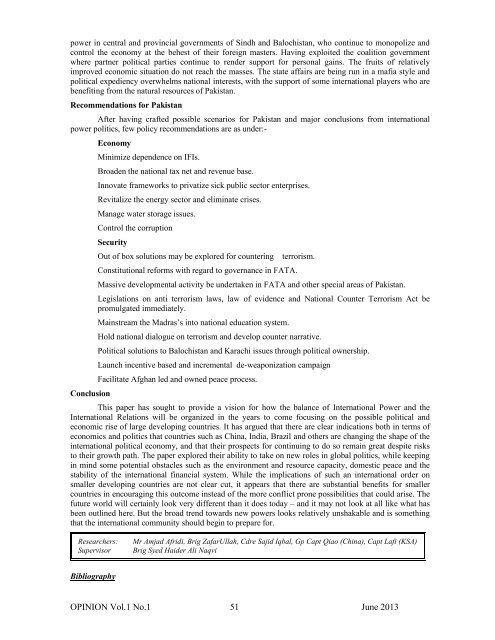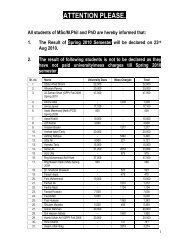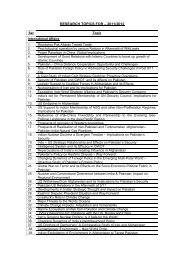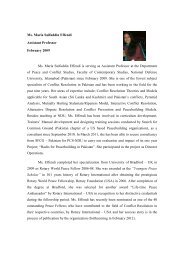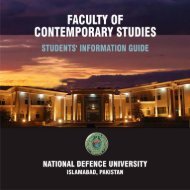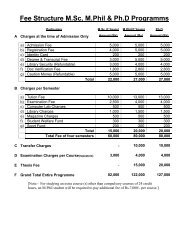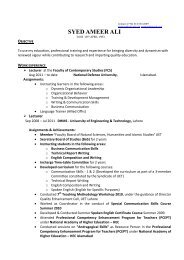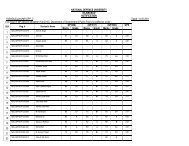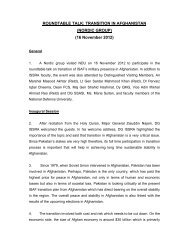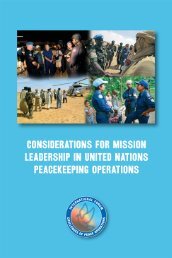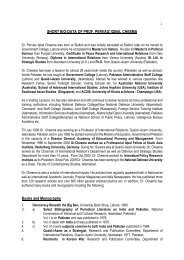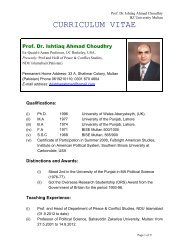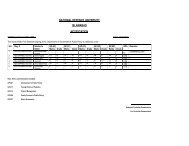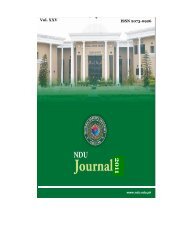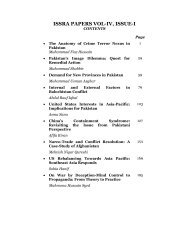OPINION Vol.1, No.1 June 2013 - National Defence University
OPINION Vol.1, No.1 June 2013 - National Defence University
OPINION Vol.1, No.1 June 2013 - National Defence University
Create successful ePaper yourself
Turn your PDF publications into a flip-book with our unique Google optimized e-Paper software.
power in central and provincial governments of Sindh and Balochistan, who continue to monopolize and<br />
control the economy at the behest of their foreign masters. Having exploited the coalition government<br />
where partner political parties continue to render support for personal gains. The fruits of relatively<br />
improved economic situation do not reach the masses. The state affairs are being run in a mafia style and<br />
political expediency overwhelms national interests, with the support of some international players who are<br />
benefiting from the natural resources of Pakistan.<br />
Recommendations for Pakistan<br />
After having crafted possible scenarios for Pakistan and major conclusions from international<br />
power politics, few policy recommendations are as under:-<br />
Conclusion<br />
Economy<br />
Minimize dependence on IFIs.<br />
Broaden the national tax net and revenue base.<br />
Innovate frameworks to privatize sick public sector enterprises.<br />
Revitalize the energy sector and eliminate crises.<br />
Manage water storage issues.<br />
Control the corruption<br />
Security<br />
Out of box solutions may be explored for countering terrorism.<br />
Constitutional reforms with regard to governance in FATA.<br />
Massive developmental activity be undertaken in FATA and other special areas of Pakistan.<br />
Legislations on anti terrorism laws, law of evidence and <strong>National</strong> Counter Terrorism Act be<br />
promulgated immediately.<br />
Mainstream the Madras’s into national education system.<br />
Hold national dialogue on terrorism and develop counter narrative.<br />
Political solutions to Balochistan and Karachi issues through political ownership.<br />
Launch incentive based and incremental de-weaponization campaign<br />
Facilitate Afghan led and owned peace process.<br />
This paper has sought to provide a vision for how the balance of International Power and the<br />
International Relations will be organized in the years to come focusing on the possible political and<br />
economic rise of large developing countries. It has argued that there are clear indications both in terms of<br />
economics and politics that countries such as China, India, Brazil and others are changing the shape of the<br />
international political economy, and that their prospects for continuing to do so remain great despite risks<br />
to their growth path. The paper explored their ability to take on new roles in global politics, while keeping<br />
in mind some potential obstacles such as the environment and resource capacity, domestic peace and the<br />
stability of the international financial system. While the implications of such an international order on<br />
smaller developing countries are not clear cut, it appears that there are substantial benefits for smaller<br />
countries in encouraging this outcome instead of the more conflict prone possibilities that could arise. The<br />
future world will certainly look very different than it does today – and it may not look at all like what has<br />
been outlined here. But the broad trend towards new powers looks relatively unshakable and is something<br />
that the international community should begin to prepare for.<br />
Researchers:<br />
Supervisor<br />
Mr Amjad Afridi, Brig ZafarUllah, Cdre Sajid Iqbal, Gp Capt Qiao (China), Capt Lafi (KSA)<br />
Brig Syed Haider Ali Naqvi<br />
Bibliography<br />
<strong>OPINION</strong> <strong>Vol.1</strong> <strong>No.1</strong> 51 <strong>June</strong> <strong>2013</strong>


